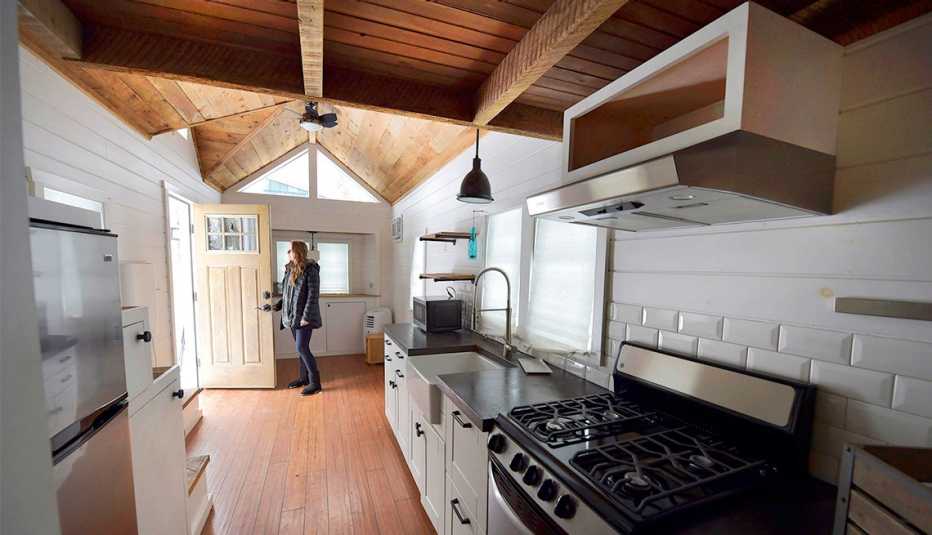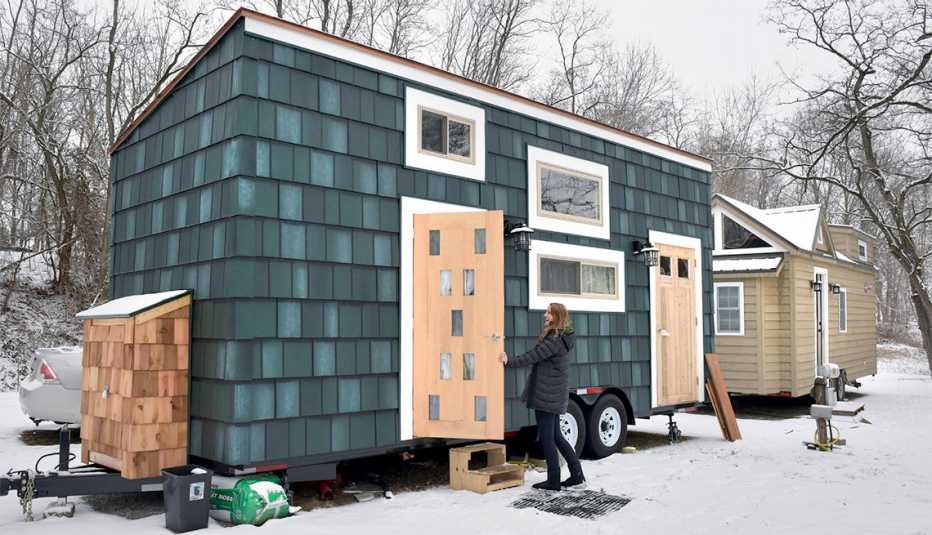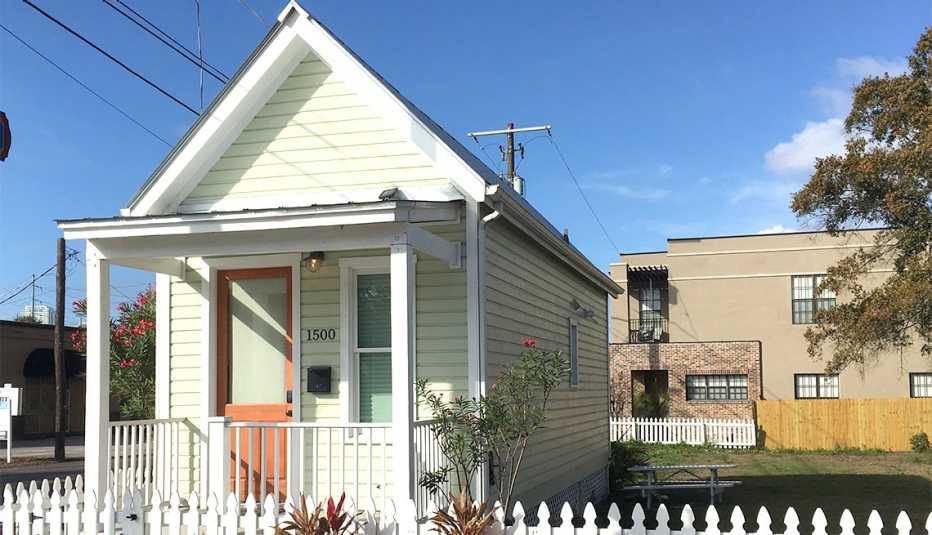AARP Hearing Center


In the tiny-house community, there’s a slightly different take on homeownership. “We like to say it’s the American dream, only smaller,” said Amy Turnbull.
As president of the American Tiny House Association, Turnbull has a good handle on what’s involved in realizing that scaled-down fantasy. And the truth is, it’s often not the smooth ride it may seem on the TV programs that have popularized the notion of living simple and cheap in a miniature home.
“In the early days, the question of where you were going to put your tiny house didn’t come up much,” Turnbull explains. “People thought they were cute. And they went out and built them and traveled around in them. Then, a few years after the movement began, people woke up and began to realize, ‘We’re having trouble finding sites for these things.’ ”
The problem is that in the arcane world of zoning ordinances and building codes, tiny homes have been an outlier — a housing option still too new to be specifically addressed in local regulations. And that has caused headaches for owners hoping to settle in a community.
It has been particularly true for those who own houses on wheels, also known as movables. They’re generally classified as recreational vehicles, which means the only legal place they can stay is at an RV park — and usually there’s a limit on length of stay. Those who try to move their house onto the property of a friend or family member also run the risk of being ordered to leave at any time.


Notions about transients
Local officials just aren’t sure what to do about tiny houses, and many tend to be particularly wary of movables. Not only do movables not generate property-tax revenue, but they’re also seen by some as less desirable housing.
“People object to them because they have this notion that the people who live in them are transients,” says Darin Zaruba, a home builder and founder of the National Tiny House Jamboree. “They look as these houses as trailers, and they’re afraid that they’ll turn a place into a crappy mobile-home park.”




































































More on Home and Family
What Humans Can Learn From Dogs
Q & A with Daniel Promislow, the codirector of the Dog Aging ProjectWhat to Do When You No Longer Can Care for a Pet
Whether you're affected by health, finances or housing, you have options